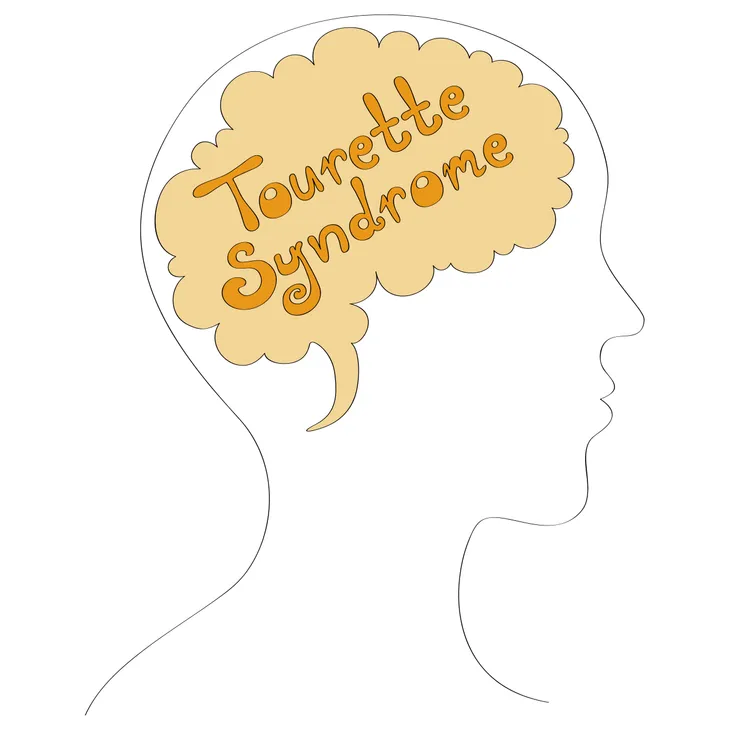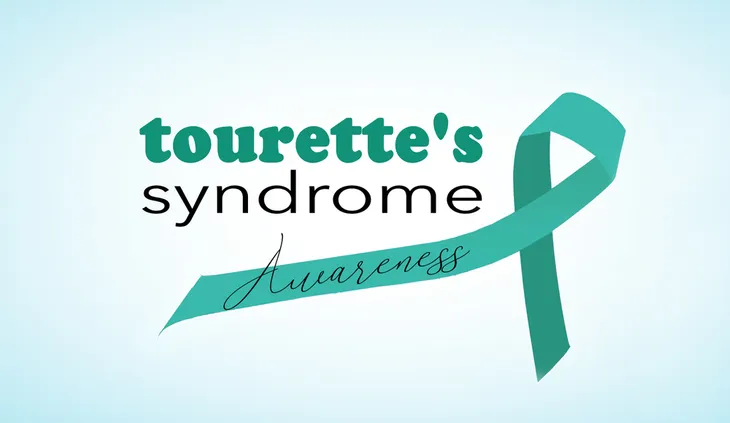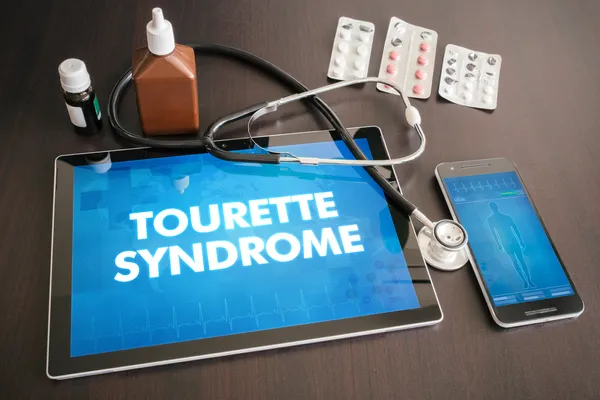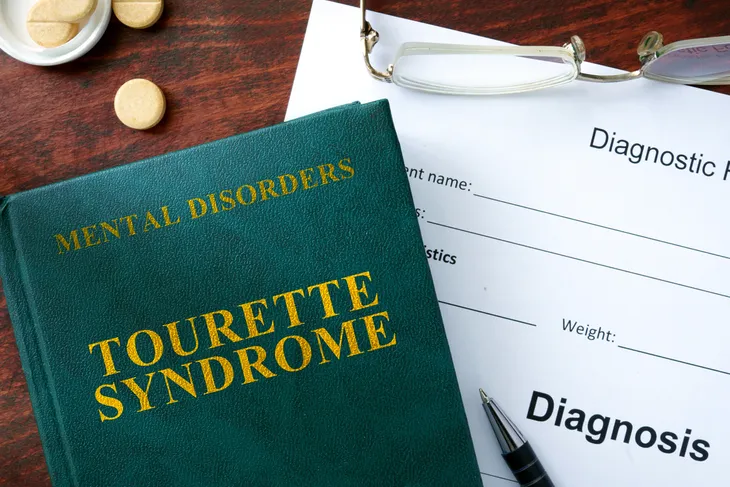Tourette Syndrome gets a bad rap in the media and films – it’s usually shown as people who shout obscenities in public without control. But in actuality, only a small percentage of Tourette patients display this behavior – it’s not one of the main markers.
The neurodevelopmental syndrome is named after Dr. Georges Gilles de la Tourette, a French neurologist who first described the symptoms in 1885. Since then, a lot of misinformation has been thrown around about the disorder, so let’s take some time to clear up 13 myths…
1. It’s Not a Mental Illness
Although psychiatrists often treat Tourette patients, “Tourette is not a mental or psychiatric illness,” explains the Tourette Association of America.
The source says the syndrome itself is a “movement disorder” that can often have comorbid conditions (that are considered mental illnesses) such as OCD, anxiety, and ADHD. The Centers for Disease Control and Prevention (CDC) says among children diagnosed with TS, 86-percent have also been diagnosed with at least 1-other “mental, behavioral, or developmental condition.”
2. Swearing Isn’t Common Among Patients
Let’s take a closer look at this symptom of Tourette – we’re not saying it doesn’t exist, but PsychCentral.com agrees it’s overblown in the media and therefore everyone associates obscenities with that behavior.
In fact, only 10 to 15-percent of Tourette patients exhibit this compulsion to blurt obscenities (called Coprolalia) in public, it adds. Swearing is an extreme version of the vocal tics that are part of Tourette’s, which we’ll get to.
3. More to Tourette Than Tics
Many people have what are called motor tics – blinking eyes, nodding heads, scrunching their nose, and similar behavior. However, a motor tic alone does not mean a person has Tourette syndrome, notes the Tourette Association of America.
While many people can have a tic disorder that ranges in severity, in order to be diagnosed with Tourette syndrome (or TS), one must have a history of a number of motor tics and at least one vocal tic, it notes. (Examples of vocal tics are throat clearing, sniffing, or grunting.) The condition must also have been present “on and off” for a year or more, it adds. A chronic tic disorder is when either motor or vocal tics are present for at least 1-year, but not both together.
4. Tics Can’t Be Easily Controlled
While there are behavioral therapies and medications that can help reduce the urge to tic, a Tourette patient cannot control these urges on their own. “The physical and vocal tics associated with TS are thought to be the result of altered brain structure and function and are thus involuntary,” explains the Tourette Association of America.
Some patients can delay (suppress) their tics, but this is temporary and doesn’t last for very long, adds the source. It also points out that although behavioral therapy can teach patients ways to avoid tics, it’s not a behavioral problem – it’s a neurological issue.
5. The Disorder Affects Adults Too
Because Tourette syndrome is a neurodevelopmental disorder (which affects the development of the nervous system), the symptoms most often appear in childhood – around age 7-in many patients.
PsychCentral.com explains tics “peak” at around age 10 to 12, and decrease by early adulthood. However, in some patients, the tics can persist well into adulthood – although the source says by late adolescence or young adulthood, “over one third of TS patients are virtually tic-free.” Remember, a diagnosis of TS means the tics had to have begun prior to adulthood.
6. It Doesn’t Impact Intelligence
There’s a misconception that people with Tourette syndrome aren’t as intelligent as their disorder-free counterparts. However, as the Tourette Association points out, some TS patients may have learning disabilities or other conditions that could affect school performance such as OCD, ADHD and anxiety disorder.
These related conditions could make it more difficult for a patient with TS to fit in socially with others. Because of this, “adjustments may be needed to create a learning environment conducive to the individual’s needs,” it adds.
7. It’s Not From Bad Parenting
Parents who do their best to raise healthy, happy kids may still notice their kids suffering from multiple tics. As PsychCentral.com points out, there’s a genetic link as far as risk goes, but parenting style itself is not going to cause tics.
However, the source does say that environment plays a role in the severity of the tics, meaning they can “worsen whenever kids are stressed out, anxious or even excited” – something for parents to keep in mind. It says having a child focus on another activity that distracts them can alleviate the tics.
8. Fewer Tics Doesn’t Mean TS is Gone
The Tourette Association says people (especially children) can go suppress their tics as best as possible (without behavior therapy) to fit in and feel normal like their peers. However, this doesn’t mean the premonitory urges – sensations that build and lead to a tic in the first place – are gone.
“While symptoms evolve over the years and some tics come and go, a lack of visual tics does not mean an individual is ‘doing better’ or ‘cured’,” says the source.
9. Suppressing Tics Won’t Cause New Ones
There seems to be another misconception that suppressing a particular tic will somehow trigger a different type of tic, kind of like putting your finger in a water leak and having it sprout somewhere else.
PsychCentral cites research that says kids who successfully suppress tics don’t experience an increase in tics. It also points to another study that found “after the suppression condition, tics decreased by 17 percent when compared to the baseline.” Yet another study shows that treating a vocal tic will not cause a new motor tic to take its place. The opposite occurred (a 26-percent drop in motor tics), it adds.
10. More Than Medication
Medications are frequently used to help TS patients control their tics, such as medications that block dopamine such as Fluphenazine, haloperidol (Haldol) and pimozide (Orap), according to the Mayo Clinic. There are other medications that are actually meant to treat high blood pressure that can help – such as clonidine, it adds. Antidepressants, antiseizure medications and ADHD medications have also had some success treating tics or their related symptoms, it notes.
Other treatments include Botox injections into the affected area to help relieve the tics, says the clinic. But there’s also drug and needle-free approaches such as behavior therapy (including “habit-reversal training”), psychotherapy, and deep brain stimulation (DBS) to target areas of the brain through electrical stimulation, it notes.
11. TS Doesn’t Target Particular Ethnic Groups
Contrary to popular belief, TS does not favor 1-ethnic group over another. The CDC says people from all racial and ethnic groups can have TS – but it adds that non-Hispanic white children are 2-times more likely to be diagnosed with TS than Hispanic or non-Hispanic black children.
Other interesting facts presented by the CDC include that boys are 3 to 5-times more likely to develop TS than girls, although there’s no explanation offered as to why. It also says children aged 12 to 17 are 2-times more likely to have TS than children aged 6 to 11.
12. TS Can Be Painful
Although TS is not generally associated with pain, evidence shows otherwise. For example, the Tourette Association notes that when a child with TS is writing something by hand, the writing can have irregular spacing due to tics and hand cramping. “Writing can become extremely difficult and sometimes even painful,” it notes.
Meanwhile, Tourette’s Action (in the UK) says certain tics such as chewing the inside of your mouth, swinging your arms or hitting your own chest can be painful and need treatment (including special exercises).
13. Those With TS Can Live Full Lives
There’s no myth that TS can “have a profoundly negative impact on the lifestyle of some individuals,” others can lead “rich and fulfilling lives,” says the Tourette Association. “Many people with TS are high-achievers, and find that their tics tend to subside when they are concentrating hard on a task,” it adds.
The source says TS hasn’t stopped many people from achieving success as musicians, surgeons or even athletes. Sources note that patients with TS also have normal life expectancy.
















